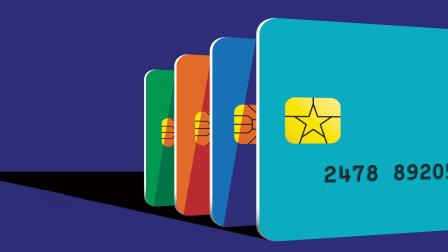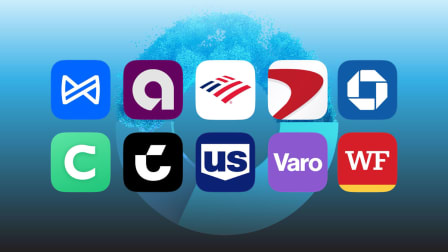How Millennials Can Achieve Financial Security Without Owning a Home
Buying a home is more challenging than ever, but young adults can still build wealth with good savings habits

Even before the coronavirus pandemic, the American dream of homeownership was difficult to achieve. But for many millennials (roughly ages 26 to 40), the goal of buying a house now seems out of reach, with many facing lost or reduced incomes as well as a scarcity of starter homes.
A recent Bankrate survey found that nearly 60 percent of Americans ages 18 to 34 have put off a major financial goal, such as buying a house or a car, because of the pandemic. More than half of those who have delayed real estate purchases expect to wait nine months or longer.
These delays raise the risk that many millennials won't achieve financial security. After all, buying a house remains the chief path to building wealth for most Americans, with home equity accounting for the biggest portion of household net worth (PDF).
Despite the obstacles, a growing number of younger families have been buying homes. But overall, the millennial rate of homeownership still lags behind previous generations, especially for people of color and lower-income households.
The good news is that you don't need to own a home to achieve your financial goals. “Renting can be its own path to financial security,” says Kevin Mahoney, a fee-only certified financial planner in Washington, D.C.
But you do need a plan, as we'll explain.
The Real Value of Homeownership
It may seem counterintuitive, but the biggest financial benefit of homeownership isn't about the house itself. "Owning a home encourages a discipline and savings mindset that is key to building financial security," says Jay Abolofia, a fee-only certified planner in Waltham, Mass.
What to Do
Develop a savings mindset. Start by scrutinizing your budget to free up cash, a process you may have started during the pandemic. Note the essential costs, such as rent and utilities, that have risen or dropped. You may be able to save on discretionary spending by traveling and eating out less.
You'll get the most impact by trimming big-ticket items, but don’t overlook smaller expenditures, which can add up, such as your streaming subscriptions.
If you don’t find much wiggle room in your spending plan right now, don’t be discouraged. Focus on stashing away whatever you can, even if it’s just a few dollars a week.
“What’s most important is not how much you save, but to develop the long-term behavior of saving," says Meir Statman, a finance professor at Santa Clara University and the author of “Finance for Normal People: How Investors and Markets Behave" (Oxford University Press, 2017).
Gradually increase the amount as you get raises or receive windfalls. Your goal is to funnel the money you would be putting into paying down a mortgage into savings.
You may also be able to get assistance from the recently enacted American Rescue Plan, which offers help through additional stimulus payments, child care tax credits, rental assistance, and more.
Tackle your debts. It may feel like you’re not making much headway on savings if you’re saddled with debt, such as student loans, as many millennials are today. But look at it this way: If you’re managing to pay those amounts down, that’s a form of investing, too.
“Your debt payments give you a guaranteed rate of return, similar to buying a bond with that interest rate,” Abolofia says. For example, wiping out the balance on a credit card with a 16 percent interest rate is equivalent to earning a 16 percent return on that money.
Many planners suggest paying down your higher-rate credit card debt first. But some people get more satisfaction by tackling smaller balances, even if they carry lower interest rates, because they can be erased more quickly. Either way, keep reducing those balances.
Make the most of your 401(k). If your employer offers a 401(k) retirement plan with an employer match—and most do—aim to contribute enough to get the full amount. It’s free money that can grow tax-sheltered for the long term.
Aim to increase the amount you stash away over time, perhaps by 1 or 2 percent a year. Most plans let you schedule these increases automatically, and you probably won’t notice the difference in your paycheck.
If your cash flow allows it, stash additional money in a Roth IRA, Abolofia says. Although those dollars are contributed after-tax, you will probably be a lower tax bracket when you withdraw the money in retirement, and that money will grow tax-free. Plus, you can withdraw the Roth IRA contributions at any time without penalty or tax, which gives you liquidity.
If you don’t have a retirement plan at work or you’re self-employed, you can save on your own in an IRA or a solo 401(k), which lets you stash away significant amounts in tax-sheltered accounts.
Earn higher rates on your savings. Long-term savings are great, but it’s also crucial to build short-term savings, whether for an emergency fund, a wedding, or a down payment.
To get the best return on that money, opt for an online savings account. Although interest rates are low right now, these accounts still typically offer higher rates than walk-in banks, says Ashley Dixon, a fee-only certified financial planner in Colorado Springs, Colo.
Ally Bank and Marcus by Goldman Sachs, for example, were recently paying a 0.5 percent interest rate. By contrast, the average national interest rate on savings accounts is just 0.06 percent, according to the FDIC.
You can compare savings account rates online at websites such as bankrate.com and depositaccounts.com.
Invest in your career. Building financial security isn't just about saving; you also need to keep your income growing. That may mean changing jobs, perhaps by switching employers or shifting to a new industry.
Many young adults are likely to switch jobs in the next few years, according to a recent Gallup survey. Millennials are three times more likely than older workers to say they've changed jobs within the past year, 10 percentage points less likely to expect to be with their current employer in a year, and the most likely to be looking for a new job, Gallup found.
Having flexibility as a renter can be advantage for young adults seeking to build a career. If you have to sell a house, perhaps at a loss, it can be difficult to make a switch, Mahoney says.
Renters may also find more cash in their budget to pay for classes or go after a graduate degree, which may improve their job prospects. For them, just as with homeowners, it helps to plan for the long term.




















